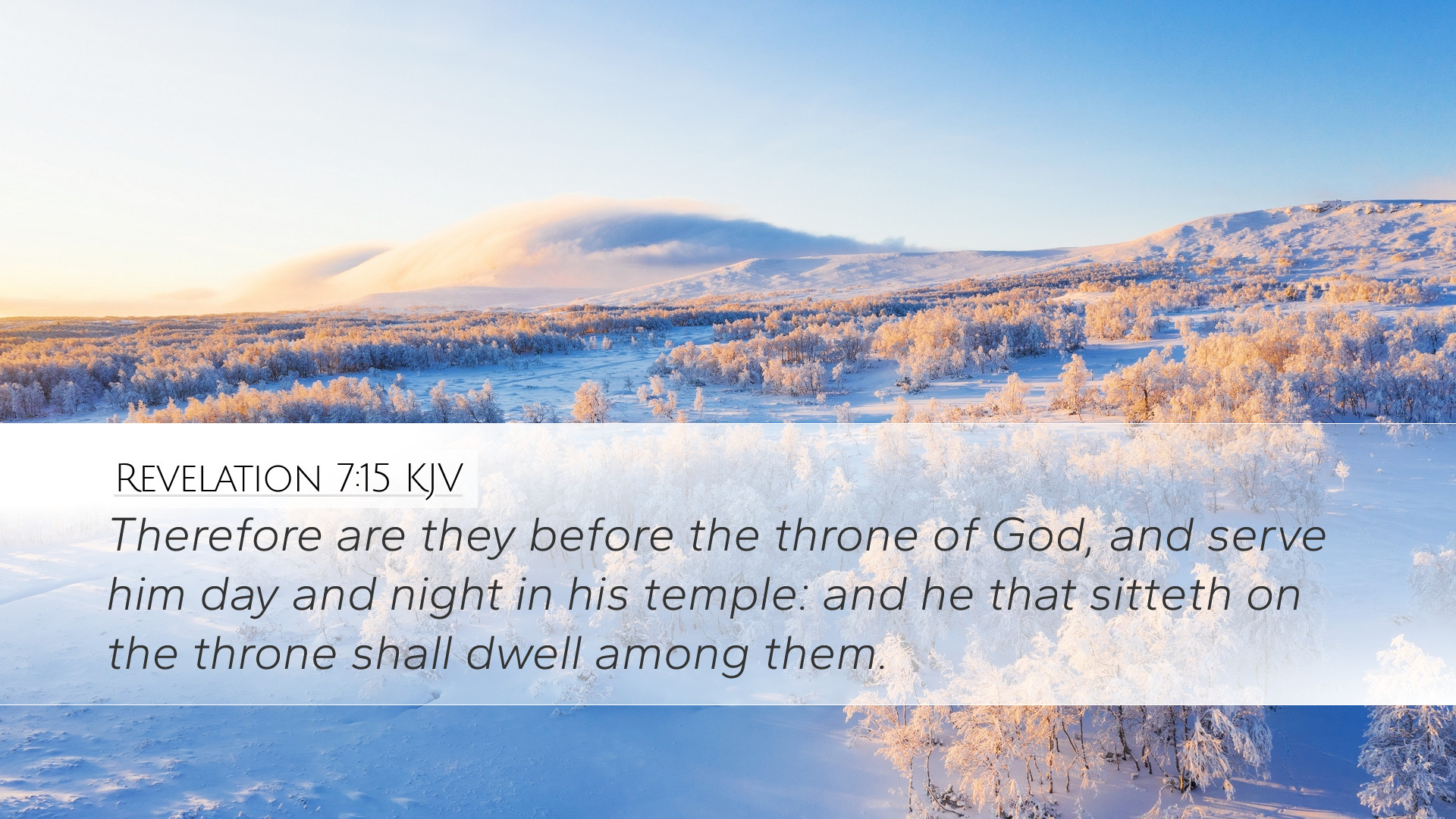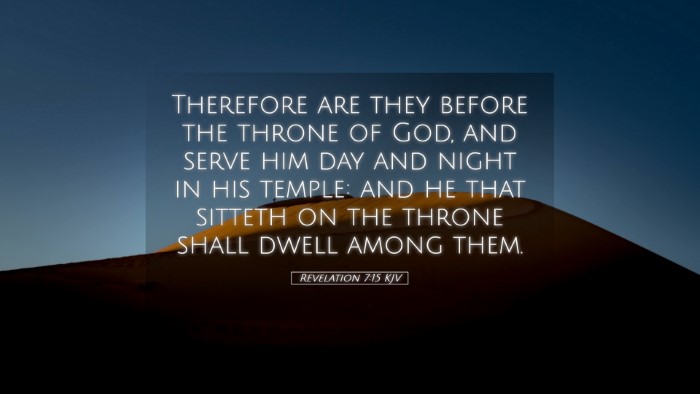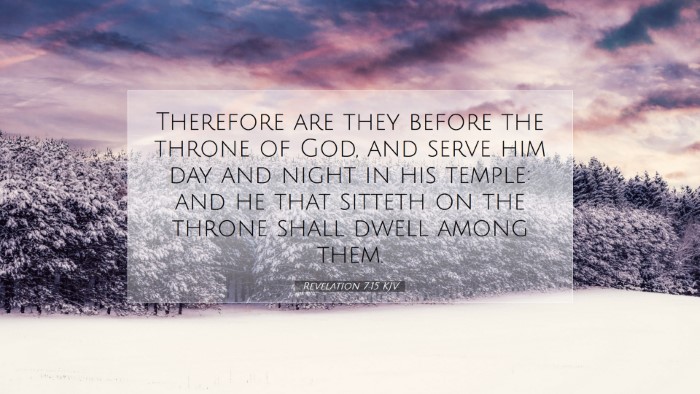Commentary on Revelation 7:15
This verse states, “Therefore are they before the throne of God, and serve him day and night in his temple: and he that sitteth on the throne shall dwell among them.” (KJV). This passage is rich with theological meaning and pastoral significance, drawing insights from the perspectives of prominent biblical commentators throughout history.
Contextual Overview
Revelation 7 is situated within the larger apocalyptic narrative of the Book of Revelation. It follows the opening of the seals and presents an interlude that emphasizes the preservation and triumph of God’s people in tribulation. This chapter introduces us to the vision of the 144,000 sealed servants of God, symbolizing protection and ownership by God. Following this, a great multitude, drawn from all nations, stands before the throne of God.
Insights from Matthew Henry
Matthew Henry emphasizes the significance of the multitude before the throne of God. He notes that they have come from great tribulation, which highlights both their suffering on earth and their subsequent glorification in heaven.
- Servitude and Worship: Henry points out that serving God day and night signifies continuous devotion. This reflects the nature of true worship—unending and full of reverence.
- God's Presence: The notion that God dwells among His people serves as a reminder of the intimate relationship between the Creator and His creation. Henry remarks on the profound comfort this offers to believers, as it assures them of God’s nearness, particularly during times of trial.
Reflections from Albert Barnes
Albert Barnes offers a unique perspective on the role of the saints in the heavenly realm. He interprets the phrase "serve him day and night" as indicative of the roles believers will assume in eternity.
- Active Service: Barnes suggests that the term “serve” implies an active participation in God’s plan. The believers are not idle in heaven; instead, they engage in worship and service that glorifies God eternally.
- Heavenly Temple: The reference to God’s temple reinforces the idea of a sacred space where divine worship occurs. Barnes elaborates that the heavenly temple embodies the fulfillment of God’s promises and serves as the ultimate sanctuary for believers.
Exegesis by Adam Clarke
Adam Clarke’s commentary delves into the implications of John’s vision, revealing the deeper meanings of heavenly worship and God’s presence amongst His people.
- Cleansing and Destiny: Clarke highlights that the multitude's appearance before God's throne signifies their purification through Christ’s sacrifice. They have come out of great tribulation, which speaks to their journey of faith and endurance.
- The Nature of Eternal Life: Clarke also notes that eternal life in the presence of God is marked by joy and fulfillment. The believers’ service is not a burden but a source of happiness and completion.
Theological Implications
This verse holds profound theological weight, revealing essential truths about God's character and the nature of the redeemed community.
- Redemption and Hope: The great multitude symbolizes the universal availability of redemption. It extends hope to all who face persecution and suffering, reaffirming God’s promise of salvation.
- Worship as a Divine Priority: The continuous worship of God underscores the centrality of worship in the believer's existence. It highlights that in heaven, life is ultimately oriented towards honoring God.
- Eschatological Fulfillment: This verse anticipates the eschatological reality that believers will experience—a complete restoration and presence of God devoid of suffering, illustrating the fulfillment of God’s redemptive plan.
Pastoral Application
For pastors and spiritual leaders, this commentary encourages them to emphasize the hope found in Revelation 7:15.
- Comfort in Trials: Pastors can draw on this verse to provide comfort and encouragement to those undergoing trials, reassuring them of God’s ultimate presence and victory over suffering.
- Call to Worship: This passage serves as a call to continual worship in the life of the church, urging congregations to cultivate an attitude of service and reverence towards God.
- Hope for the Future: Emphasizing the eschatological promise of dwelling with God can inspire believers to maintain hope and pursue holiness in their lives.
Conclusion
Revelation 7:15 encapsulates vital truths about the nature of worship, the reality of suffering, and the promise of God’s presence. Its rich theological insights offer comfort and encouragement to believers facing trials, reminding them of their identity in Christ and the glorious future that awaits. Through the insights of renowned commentators such as Matthew Henry, Albert Barnes, and Adam Clarke, this verse becomes a profound reminder of God’s faithfulness and the ultimate purpose of creation—to glorify Him eternally.


